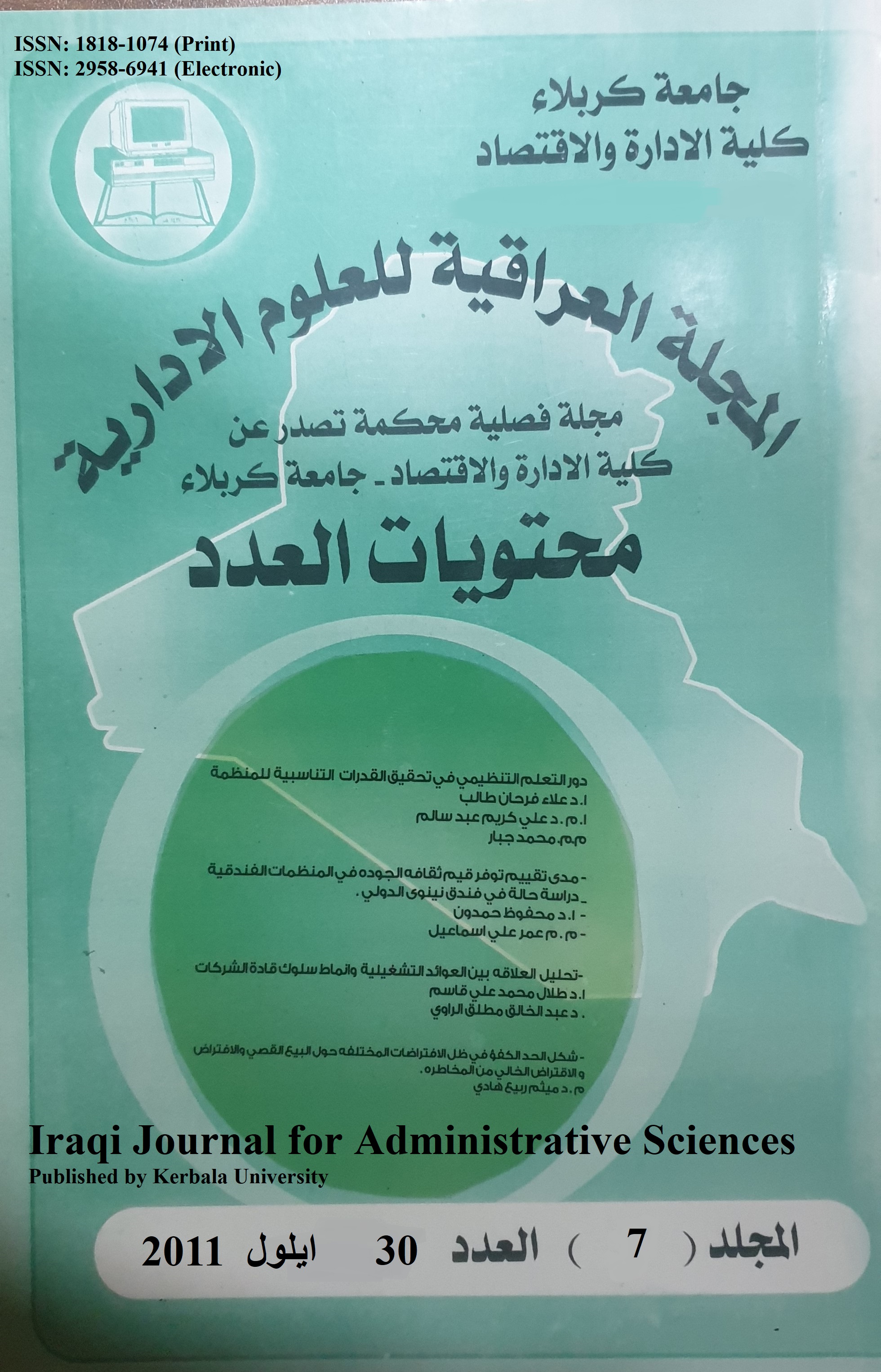The impact of organizational culture in promoting social responsibility and an analytical study - in the colleges of the University of Qadisiya
Keywords:
Organizational culture, social responsibilityAbstract
The purpose of this study is to investigate connections between organizational culture and social responsibility at Al- Qadisiya University The main aim of the study is to find connections between social responsibility and different organizational culture types,(Clan culture , Market culture , Hierarchy culture,adhocracy culture ).Standardized organizational culture and social responsibility questionnaire comprising 38 items was developed by the Denki Ringo research group in the japans (Ishikawa et al.,2006:33) .The Questions in the survey addressed four different culture types- clan, market, hierarchy, adhocracy, and two facets of social responsibility - the university performance concerning social issues and the university respects the interests of agents. Twenty eight items questionnaires has been answered by the dean and associate dean, scientificard administrative positions in each faculty (31 dean and associate dean ) only (28) questionnaires were received for analysis with responding rate (90%) . A suitable statistical tool (mean, standard deviation, correlation coefficient, linear regression, T test, F test), have been used fore supporting the hypothesis study. The main results of this study declared that there were significant correlation between organizational culture and social responsibility. Finally the study recommended managerial commitment and financial support to senior management at the university of applying the concept of social responsibility.
Downloads
Published
How to Cite
Issue
Section
License
Copyright (c) 2011 College of Administration and Economics - University of Karbala

This work is licensed under a Creative Commons Attribution-NonCommercial-NoDerivatives 4.0 International License.
Authors retain the copyright of their papers without restrictions.






